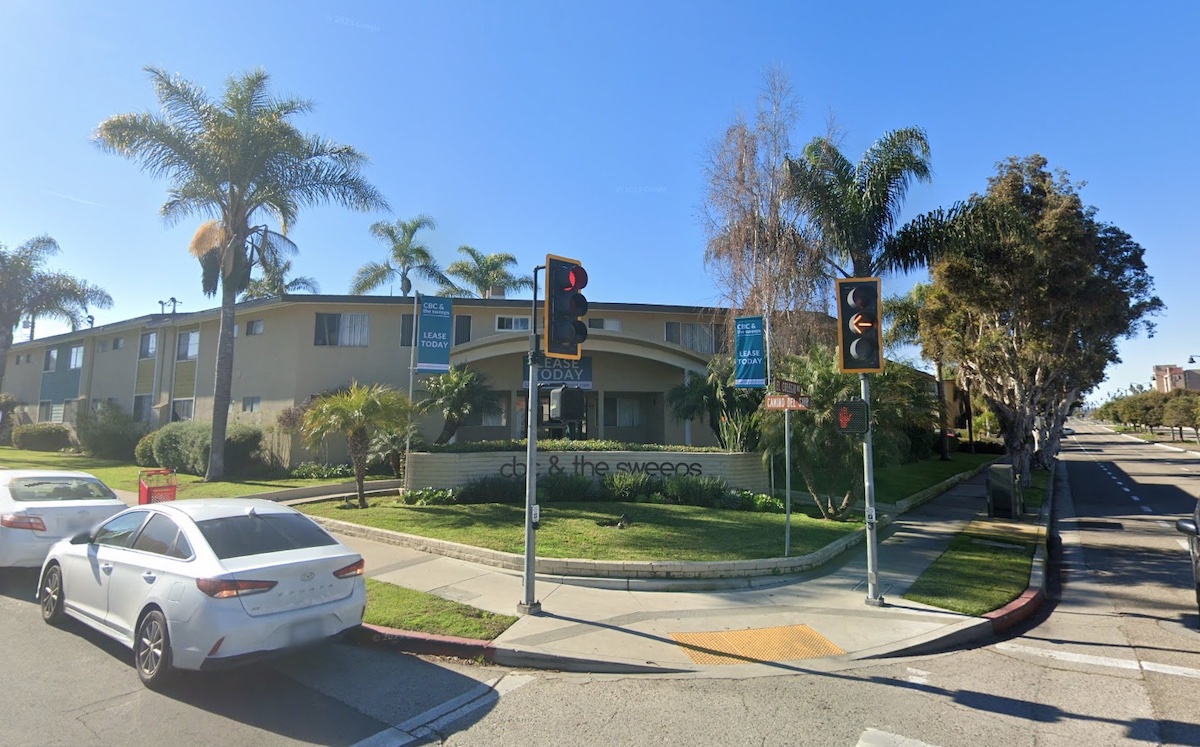Hundreds Evicted in Isla Vista by New Landlord
Owner, Core Spaces, Uproots Tenants for Renovations

“I am outraged and appalled at the recent eviction notices affecting Isla Vista families and students,” said Supervisor Laura Capps, whose District 2 encompasses the college town, where a new landlord sent eviction notices to tenants of 243 apartments in three buildings. Capps is referring to the latest and perhaps most dramatic example of a real estate phenomenon known as renoviction. It describes the practice of evicting tenants with the intention of renovating apartments in order to raise the rents substantially.
Capps called it a signal of the county’s housing crisis: “This travesty is happening to families who have lived in this complex for decades, diligently paying their rent each month so that they may provide a secure space for their children. It is happening to students, who struggle each year to find housing due to UCSB’s failure to provide housing for its students.”

Tenants received notice on March 15 that the buildings, 6711 and 6721 El Colegio, and 775 Camino del Sur, were sold to Core Spaces, a Chicago-based developer. One day later, tenants received a “60-Day Notice of Termination of Tenancy,” according to a “fact sheet” from the Santa Barbara Tenants Union. In the eviction notice, Core Spaces stated it plans to renovate the buildings, collectively called CBC & the Sweeps, and that tenants must leave in 60 days or when their lease expires, some of which are at the end of August. The company offered to waive the last month of rent in lieu of relocation assistance. It also “hopes” tenants will return after renovation, but does not mention what the rents will be.
“We are allowing as many tenants as possible to continue living in the community until the end of their current lease term,” said Katy Darnaby, managing director of communications for Core Spaces. She said fewer than 10 percent of tenants had to relocate before the end of the school term. “We recognize that any relocation is a hardship for residents,” Darnaby said, and though the company had no other apartments nearby, “our team is working directly alongside our residents to provide resources, financial assistance, and letters of recommendation for relocation.”
According to Capps’s office, Core Spaces has a practice of going into college towns, renovating apartments, and jacking up the prices. “Our office has reached out to nonprofits to see if there’s any support there to build resources for the families,” said Jordan Killebrew, who is the communications director for Capps and has longtime ties to Isla Vista. “We’ve reached out to UCSB to ask what might be temporarily done; perhaps open the residence halls during the break,” he said.
Robin Unander, an attorney with the Isla Vista Tenants Union, said that tenants did not seem to get the usual “time to renew your lease” letter at the turn of the year. “If that’s true, it’s probably because the property was in escrow or for sale,” she said. The university’s Community Housing Office has also expressed concerns for the many displaced students.
Unander’s take on Core Spaces’ apartment purchase was, “You buy the beat up one on the block, make it shine, then you flip it.” Renovations on the buildings, which are two-story block structures appearing to date from the ’70s, are apparently planned to occur in phases, beginning with 111 units, she said. Core Spaces had indicated that tenants impacted by renovation could complete their lease, or move and get rid of the lease without penalty. Between the three buildings, there were about 254 signed leases. No one knows how many people were in each unit, but Capps’s office estimated about 1,000 lived in the three buildings.
The county’s relocation ordinance only required the assistance if a permit were required for the renovation, Unander noted. “A kitchen renovation with granite counters, new paint, new flooring — cosmetic things like that don’t require a permit. Only structural changes, like windows, or plumbing and electrical work would require a permit,” caveats that helped no one, she said, but spelled out what “substantial” renovations might mean under state law.
“If they’re in compliance with the local county ordinance, and they’re offering the last months’ rent, they aren’t doing anything wrong. The ordinance was meant to slow down evictions, not flood the market with hundreds of tenants competing for housing all at once,” Unander said, referencing Section 44 of the County Code. An “eligible relocation event” is only supposed to occur in 10 percent of units every 90 days, she said.

You must be logged in to post a comment.